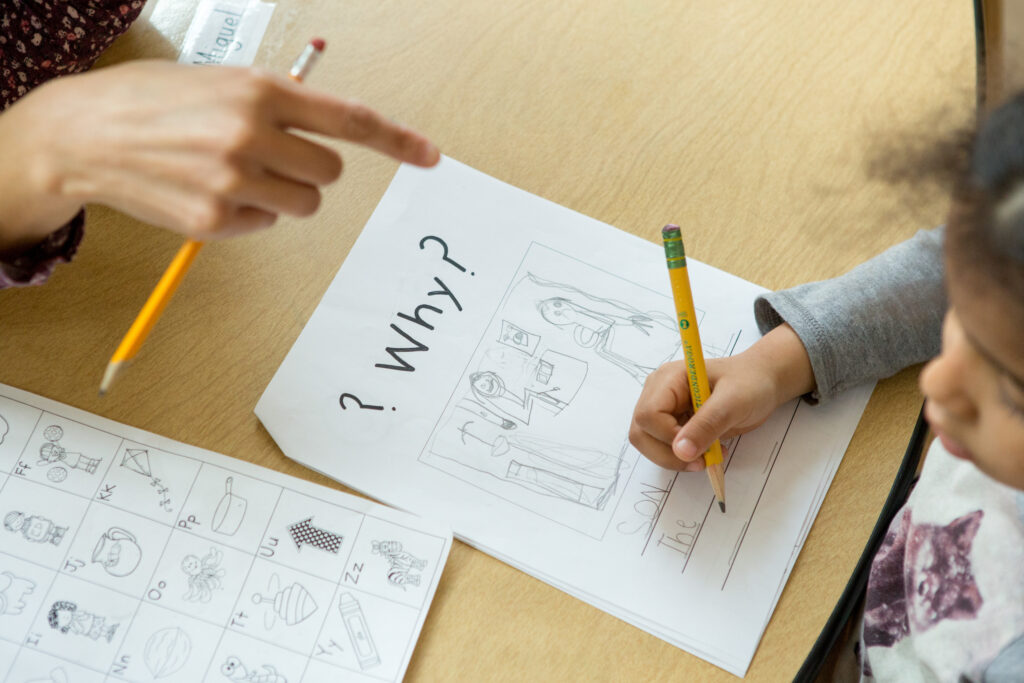Have you ever been in a sales meeting and you just nailed your presentation? Or perhaps you picked a stock that is taking off due to your uncanny financial acumen. Maybe you made a mouthwatering appetizer for a holiday dinner that showcases your skills as a top chef. While it is possible these things are true, it’s just as likely that the client was desperately in need of your firm’s services anyway; that it’s not your financial savvy but a bullish market that gets the credit for a good stock pick; or perhaps people were just hungry waiting for a main course that took too long in the oven.
When we jump to conclusions about ourselves or about the motives of other people’s actions we fall prey to something psychologists call “attribution bias.” This type of faulty thinking is one of several cognitive biases that we all experience.
“My manager wants me back in the office because she doesn’t believe we are really working at home.”
“That person left a big tip; they are so kind!”
Sound familiar? We’re all liable to jump to conclusions about the motives of other people’s actions. The truth is, we never really know what motivates people to do the things they do. Perhaps the big tipper simply made a mistake and didn’t realize they had overtipped. Maybe your manager wants workers back in the office because their boss is demanding it.
To help us get a clearer picture of things and better manage something like attribution bias, we must first understand that we all come programmed with cognitive biases. In many instances, they are our brain’s attempt to help us make decisions quickly (if not always accurately).
What is a Cognitive Bias?
The word “bias” often has a negative connotation. However, humans have cognitive biases because they help us take in information, evaluate situations, and make decisions quickly. These biases often develop from past experiences. Over time, they also change with the constant influxes of information, like browsing social media. The Reboot Foundation focuses on advancing critical thinking skills. That’s why we aim to share information about cognitive biases, so we can help people understand how to combat biases with critical thinking skills. Attribution bias can often lead to faulty decision-making because it fundamentally mis-categorizes the cause of an action. That can lead us to make decisions based on that incorrect assumption.
What is a Cognitive Bias?
Examples of attribution bias and errors are everywhere.
They often come into play during criminal justice proceedings. It also often occurs in investigations as authorities try to determine people’s motivations behind illegal actions. A police department in Florida posted a video on social media of a father with two young children leaving a Walmart with a box of diapers he did not pay for.
The police asked for the public’s help in identifying the man, saying in the post: “So when your card is declined and you try another one with the same result, that is NOT license to just walk out with the items anyway. Poor little kids had no idea.”
Attribution bias can often lead to faulty decision-making because it fundamentally mis-categorizes an action’s cause, leading us to make decisions based on that incorrect assumption.
The condescending tone of the post irked thousands of people who saw it, calling the police “cold and heartless.” Many viewers saw something in the video that the police did not: A struggling parent who made a poor choice.
“My first reaction was not that the man pictured was a thief [but] rather a father facing an impossible decision to either break the law or not have basic necessities for his kids,” said one commenter.
Investigators, police, and prosecutors often want judges and juries to consider that a suspect committed a crime because they’re a “bad person.” (After all, “good” people don’t break the law, right?) Defense attorneys and advocates want courts to instead consider the circumstances that may have contributed to their defendant’s actions.
Cognitive biases are a real part of our personal and professional decision-making processes. So, what do we do about it? Here’s how you can use critical thinking skills to combat your own attribution biases.
Identifying Attribution Bias
If you find yourself in a situation where you’re feeling upset with someone’s behavior, look out for thinking patterns based on your assumptions. Are you looking at the big picture of challenging situations at work and at home? Here are four common types of attribution biases to take into account:
Fundamental attribution error
This form of attribution bias describes a tendency to attribute behavior to a person’s intrinsic personality instead of situational or environmental causes. For example, if a driver cuts you off, fundamental attribution error makes you think that they must be a terrible driver. But they could be potentially avoiding some debris in the road that you didn’t see.
Actor-observer bias
The way we experience fundamental attribution error differs if we are making attributions about ourselves or about others. When we are the actors, we tend to base our motives for action on situational or environmental causes. However, when we observe others, we tend to base their actions on what we perceive about their personalities. If you swerve to avoid debris and cut off another driver, you are not likely to think of yourself as a bad driver. But if you were the one being cut off, you might tell yourself a different story.
Self-serving bias
In this bias, we attribute our wins to our intrinsic characteristics, and our failures to other people or things outside of our control. If we swerve to avoid debris, we consider ourselves to be skilled drivers. If we are unable to avoid the debris, it’s more likely that we will blame the debris or the width of the road rather than our own skills.
Hostile attribution bias
This form of bias describes a common tendency to interpret other people’s actions as hostile, rather than neutral or benign. In our example of being cut off by another driver, let’s imagine there is no debris in the road. We may assume that the driver cut us off on purpose, which can lead to road rage instances. It’s possible that the other driver didn’t even see us, or had an emergency of some sort.
Just exploring two to three other causes of a challenging situation puts you in a position to counteract your own attribution bias.
Just exploring two to three other causes of a challenging situation puts you in a position to counteract your own attribution bias.
How To Overcome Attribution Bias
Define your perspective, then challenge it. We often find ourselves reaching a conclusion about a question without even realizing it. Identifying our own beliefs about various topics allows us to challenge those beliefs. We can do so by conducting additional research or reading opposing viewpoints. If we don’t identify our thoughts about a topic, it’s nearly impossible to refute or solidify them.
Get curious about other options. Even if you feel sure that your manager wants you back in the office to satisfy her control issues, it is helpful to consider other options. Why else could this situation be happening? What are other potential reasons for someone’s behavior? Exploring two to three other causes of a challenging situation puts you in a position to counteract your own attribution bias. That could change your mind about how to address the issue at hand, and in the future.
Do your research. Once you have defined your own thinking and considered other options, conducting research can help you identify solutions or opportunities. In this age of never-ending information, identifying accurate and reliable sources of information can be challenging. Our global COVID-19 experience has shown us the ways an advanced field like scientific research can be misunderstood, misconstrued, and misrepresented. Academic and scholarly sources of information are important primary sources of research. Searching for research reviews or summaries can help us understand complicated topics by getting an overview of existing research.
So, maybe your boss got some significant feedback from your colleagues about how they want a structured office environment. Maybe the friend who tipped heavily is trying to impress the group he’s dining with. Identifying these moments allows us to practice tackling our own attribution biases.
The Reboot Foundation is dedicated to supporting efforts by individuals and organizations to better integrate critical thinking into our daily lives. By learning about our biases and how to combat them with critical thinking skills, we open up opportunities to better understand ourselves, each other, and the systems we operate within – all ultimately in service of making better decisions that advance opportunity.
By Helen Lee Bouygues, President of the Reboot Foundation




